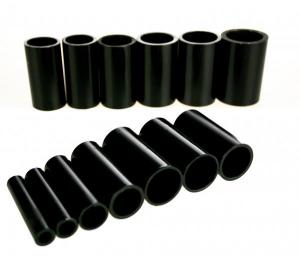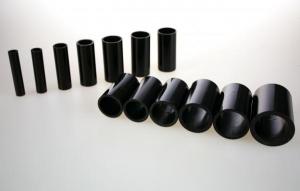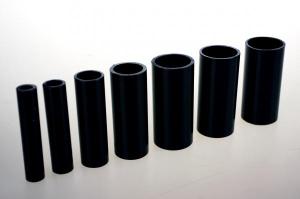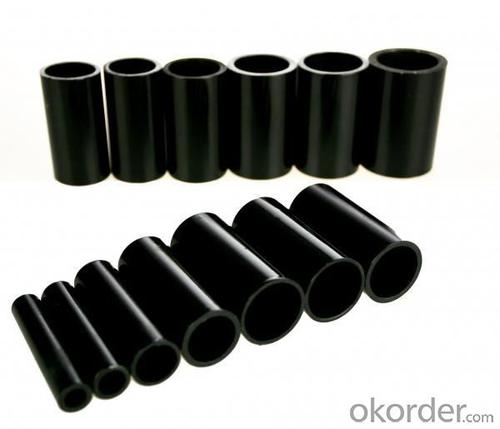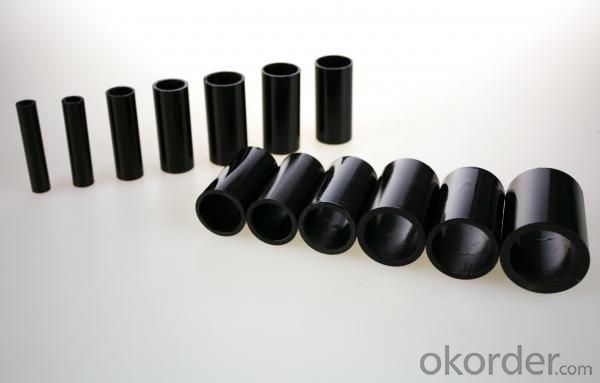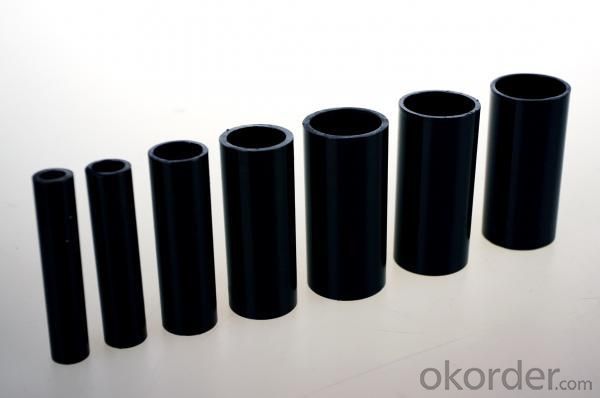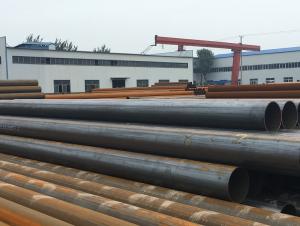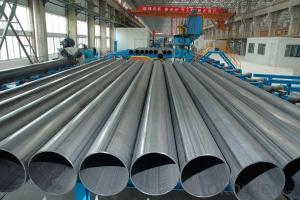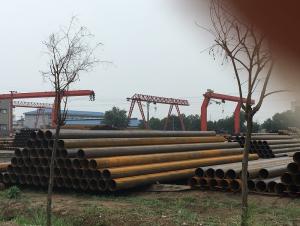Seamless Steel Tubes For Elevated Temperatures
- Loading Port:
- China Main Port
- Payment Terms:
- TT or LC
- Min Order Qty:
- 20MT m.t.
- Supply Capability:
- 5000 Tons Per Month m.t./month
OKorder Service Pledge
OKorder Financial Service
You Might Also Like
Specifications of Seamless Steel Tubes for Elevated Temperatures:
Standard:
DIN17175: Seamless Steel Tubes for Elevated Temperatures.
EN 10216-2: Seamless steel tubes for pressure purposes - Technical delivery conditions - Part 2: Non-alloy and alloy steel tubes with specified elevated temperature properties.
Size (mm):
Outer Dimensions: 3.0mm ~ 114.0mm
Wall Thickness: 0.5mm ~ 10 mm
Length: max 13000mm
Steel grade: DIN17175(St35.8, St45.8, 15Mo3, 13CrMo44, 10CrMo910), EN10216-2(P195GH, P235GH, P265GH, 13CrMo4-5, 10CrMo9-10).
Packing: Bare/bundles/crates/crate protection at the both sides of tubes or as per customers' requirements .
Painting: as requested.
DIN17175:Chemical Compositions(%)
Grade | C | Si | Mn | P | S | Cr | Mo |
St35.8 | ≤0.17 | 0.10-0.35 | 0.40-0.80 | ≤0.040 | ≤0.040 | / | / |
St45.8 | ≤0.21 | 0.10-0.35 | 0.40-1.20 | ≤0.040 | ≤0.040 | / | / |
15Mo3 | 0.12-0.20 | 0.10-0.35 | 0.40-0.80 | ≤0.035 | ≤0.035 | / | 0.25-0.35 |
13CrMo44 | 0.10-0.18 | 0.10-0.35 | 0.40-0.70 | ≤0.035 | ≤0.035 | 0.70-1.10 | 0.46-0.65 |
10CrMo910 | 0.08-0.15 | ≤0.50 | 0.40-0.70 | ≤0.035 | ≤0.035 | 0.20-0.25 | 0.90-1.20 |
DIN17175: Mechanical Properties
Grade | Yield Strength (Mpa) | Tensile Strength (Mpa) | Elongation(%) |
St35.8 | ≥235 | 360-480 | 25 |
St45.8 | ≥255 | 410-530 | 21 |
15Mo3 | ≥275 | 450-600 | 20 |
13CrMo44 | ≥290 | 440-590 | 20 |
10CrMo910 | ≥280 | 450-600 | 18 |
EN10216-2: Chemical Compositions(%)
Grade | C ≤ | Si ≤ | Mn ≤ | P ≤ | S ≤ | Cr ≤ | Mo ≤ | Cu ≤ | Ni ≤ |
P195GH | 0.13 | 0.35 | 0.70 | 0.025 | 0.020 | 0.030 | 0.08 | 0.30 | 0.30 |
P235GH | 0.16 | 0.35 | 1.20 | 0.025 | 0.020 | 0.030 | 0.08 | 0.30 | 0.30 |
P265GH | 0.20 | 0.40 | 1.40 | 0.025 | 0.020 | 0.030 | 0.08 | 0.30 | 0.30 |
13CrMo4-5 | 0.10-0.17 | 0.35 | 0.40-0.70 | 0.025 | 0.020 | 0.70-1.15 | 0.4-0.6 | 0.30 | 0.30 |
10CrMo9-10 | 0.08-0.14 | 0.50 | 0.30-0.70 | 0.025 | 0.020 | 2.00-2.50 | 0.9-1.1 | 0.30 | 0.30 |
EN10216-2: Mechanical Properties
Grade | Yield Strength (Mpa) | Tensile Strength (Mpa) | Elongation(%) | Elongation (%) |
P195GH | ≥195 | 320-440 | 27 | 25 |
P235GH | ≥235 | 360-500 | 25 | 23 |
P265GH | ≥265 | 410-570 | 23 | 21 |
13CrMo4-5 | ≥290 | 440-590 | 22 | 20 |
10CrMo9-10 | ≥280 | 480-630 | 22 | 20 |
Usage/Applications:
It is used for the pipelines of boiler industry.
Packaging & Delivery:
Each bundles pipes will be bundled with 6-8 pcs steel strips and with shipping marks and 2 nylon strips
40-50 days delivery on china port upon receiving original LC or prepayment.
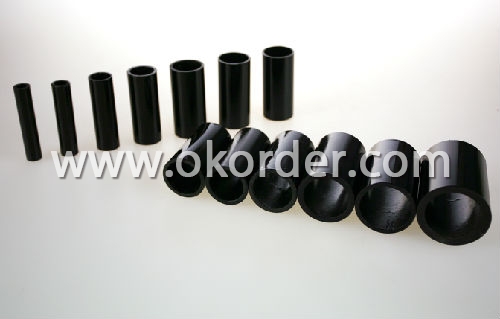
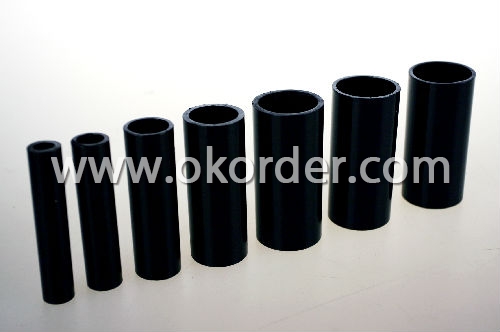
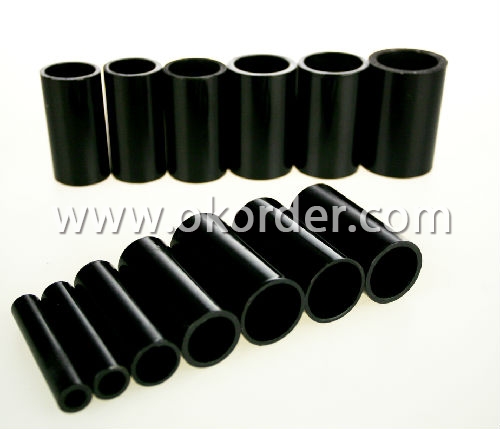
- Q: How do you determine the wall thickness of a steel pipe?
- To determine the wall thickness of a steel pipe, there are a few methods you can use. The most common and accurate method is to measure it using a caliper or micrometer. First, ensure that the pipe is clean and free from any debris or rust. Then, take the caliper or micrometer and gently place it around the circumference of the pipe, making sure it is perpendicular to the surface. Carefully close the jaws of the measuring tool until they are snug against the pipe, but not so tight that they deform the shape. Once the jaws are closed, read the measurement displayed on the tool. This measurement represents the distance between the inner and outer diameter of the pipe, which is equal to the wall thickness. Alternatively, if you don't have access to a caliper or micrometer, you can use a pipe wall thickness gauge. These gauges have a set of pins or rollers that can be inserted into the pipe, providing you with an accurate measurement. Simply insert the pins into the pipe, ensuring they are properly aligned with the wall, and check the reading displayed on the gauge. It's important to note that when measuring the wall thickness of a steel pipe, you should take multiple readings at different points along the pipe to account for any variations. This will provide you with a more accurate average measurement.
- Q: How are steel pipes sized and classified?
- Steel pipes are sized and classified primarily based on their outer diameter (OD) and wall thickness. The sizing of steel pipes is standardized to ensure compatibility and ease of use in various applications. The most common method of sizing steel pipes is by nominal pipe size (NPS), which is a North American standard that refers to a pipe's OD. NPS sizes range from 1/8 inch to 36 inches, with each size corresponding to a specific OD. For example, a 1/2-inch NPS pipe has an OD of 0.84 inches, while a 12-inch NPS pipe has an OD of 12.75 inches. It is important to note that the OD of a pipe may not necessarily match its actual measurement, as it is based on historical pipe dimensions. Additionally, steel pipes are classified into different schedules, which indicate the wall thickness of the pipe. The most common schedules are SCH 5, SCH 10, SCH 40, SCH 80, and SCH 160, with higher numbers representing thicker walls. These schedules are standardized and help in selecting the appropriate pipe for a given application. Furthermore, steel pipes may be further classified based on their end connections. The most common types include threaded, plain-end, and socket-weld connections. Threaded pipes have screw threads on both ends, allowing for easy assembly and disassembly. Plain-end pipes have no threads and are usually joined using welding techniques. Socket-weld pipes have a socket-like end that allows for welding with a corresponding fitting. In summary, steel pipes are sized and classified based on their outer diameter, wall thickness, and end connections. The nominal pipe size (NPS) indicates the outer diameter, while the schedule number represents the wall thickness. Understanding the sizing and classification of steel pipes is crucial in selecting the appropriate pipe for specific applications in industries such as construction, oil and gas, plumbing, and manufacturing.
- Q: Can steel pipes be used for hydropower generation?
- Yes, steel pipes can be used for hydropower generation. Steel pipes are often used in the construction of hydroelectric power plants to transport water from a higher elevation to lower areas, where the water's kinetic energy is converted into mechanical energy to generate electricity. The durability and strength of steel pipes make them suitable for this purpose, as they can withstand the high pressure and flow rates of water in hydropower systems.
- Q: Are steel pipes suitable for solar power plants?
- Yes, steel pipes are suitable for solar power plants. Steel pipes are often used in the construction of solar power plants due to their durability, strength, and resistance to corrosion. They can be used for various purposes in a solar power plant, including the transportation of fluids such as water or heat transfer fluids, as well as providing structural support for solar panels and other equipment. Steel pipes are capable of withstanding high temperatures and pressure, making them ideal for the efficient operation of solar power plants. Additionally, steel pipes are readily available and cost-effective, making them a popular choice in the construction of solar power plants.
- Q: Can steel pipes be used for underground water supply pipelines?
- Yes, steel pipes can be used for underground water supply pipelines. Steel pipes are strong, durable, and resistant to corrosion, making them suitable for underground applications. They are often used for water supply pipelines due to their high strength and ability to withstand high pressure and load. Additionally, steel pipes can be welded together, ensuring leak-free connections, and are available in various sizes to accommodate different water supply needs.
- Q: What are the main aspects of precision steel tubes?
- Its inside and outside diameter size can be accurate to less than 0.2mm, and it is widely used in the manufacture of precision machinery parts and engineering structure when the bending resistance and torsion strength are the same. It is also used to produce all kinds of conventional weapons, guns, shells, bearings and so on.
- Q: What is the difference between steel pipes and cast iron soil pipes?
- The main difference between steel pipes and cast iron soil pipes lies in their composition and durability. Steel pipes are primarily made of steel, a strong and versatile material known for its high tensile strength. On the other hand, cast iron soil pipes are made of cast iron, a material known for its excellent corrosion resistance and sound-dampening properties. While steel pipes are more rigid and suitable for carrying pressurized fluids, cast iron soil pipes are designed specifically for wastewater and sewage systems due to their superior resistance to rust and noise reduction qualities.
- Q: Welded and seamless steel pipe how to distinguish?
- Different uses:Mainly used for seamless pipe or structural parts of the transmission fluid, mainly used in machinery industry, and seamed steel pipe is mainly used in the construction industry, such as water, gas, compressed air and low pressure fluid. But seamless steel tubes are used in all pressure pipes.
- Q: Are steel pipes resistant to impact or external forces?
- Yes, steel pipes are generally resistant to impact and external forces. Steel is known for its high strength and durability, making it an ideal material for various applications, including pipes. Steel pipes have the ability to withstand external forces such as impact, pressure, and vibrations. They are often used in industries that require reliable and sturdy piping systems, such as oil and gas, construction, and infrastructure. Additionally, steel pipes are less prone to cracking or breaking under extreme conditions compared to other materials. However, the resistance to impact and external forces may also depend on the specific grade and thickness of the steel used in the pipes.
- Q: What are the safety precautions to consider when working with steel pipes?
- When working with steel pipes, it is important to consider several safety precautions. First, always wear personal protective equipment, including gloves, safety glasses, and steel-toed boots to protect against potential injuries. Additionally, ensure that the work area is clear of any tripping hazards and that all tools and equipment are in good working condition. It is crucial to follow proper lifting techniques and use machinery or equipment, such as cranes or forklifts, to move heavy steel pipes to prevent strains or injuries. Furthermore, be cautious of potential fire hazards by keeping flammable materials away from the work area and having fire extinguishers readily available. Finally, regularly inspect the steel pipes for any defects or damages, as working with compromised pipes can pose significant risks.
1. Manufacturer Overview
| Location | Wuxi, China |
| Year Established | 1991 |
| Annual Output Value | 300,000Tons |
| Main Markets | Europe; Southeast Asia; etc. |
| Company Certifications | API 5L;API 5CT;API Q1;ISO/TS29001 |
2. Manufacturer Certificates
| a) Certification Name | |
| Range | |
| Reference | |
| Validity Period |
3. Manufacturer Capability
| a) Trade Capacity | |
| Nearest Port | Wuxi; Shanghai |
| Export Percentage | 41% - 50% |
| No.of Employees in Trade Department | 3900-4000 People |
| Language Spoken: | English; Chinese; Spanish |
| b) Factory Information | |
| Factory Size: | Above 450,000 square meters |
| No. of Production Lines | Above 10 |
| Contract Manufacturing | OEM Service Offered;Design Service Offered |
| Product Price Range | Average |
Send your message to us
Seamless Steel Tubes For Elevated Temperatures
- Loading Port:
- China Main Port
- Payment Terms:
- TT or LC
- Min Order Qty:
- 20MT m.t.
- Supply Capability:
- 5000 Tons Per Month m.t./month
OKorder Service Pledge
OKorder Financial Service
Similar products
Hot products
Hot Searches
Related keywords
